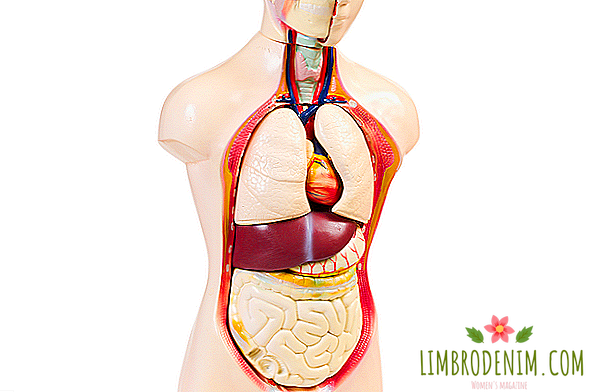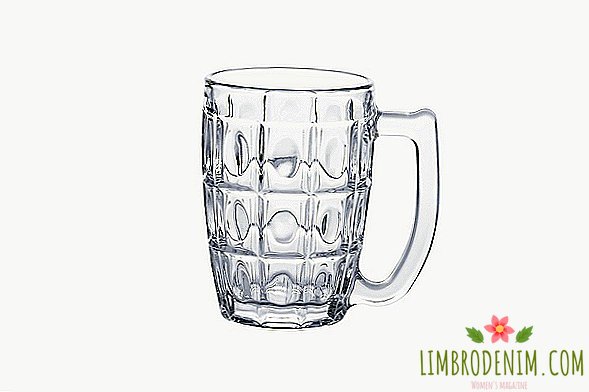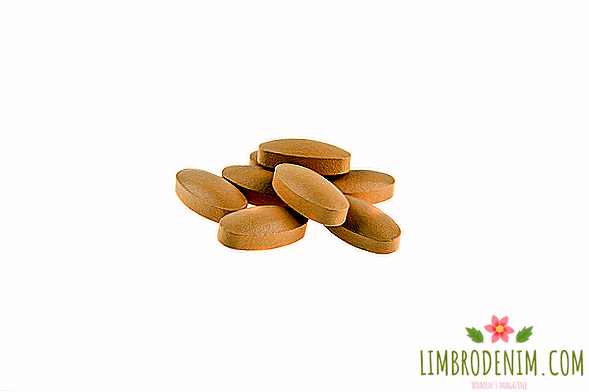Need to drink less: How to protect the liver - the most patient organ
The liver resembles the Phoenix bird: if at least 25% of the cells of an organ are alive, it will recover successfully due to regeneration. At the same time, the liver itself has no nerve endings and it never hurts. So, about the problems you can learn too late - on the way to the operating room. How to avoid a sad fate, we found out from experts: a doctor of medical sciences, a gastroenterologist, a hepatologist, a member of the Scientific Society of Gastroenterologists of Russia and the European Association for the Study of Liver Diseases (EASL) Igor Bakulin, a professor at the IPO of the First MGMU. I. M. Sechenov, President of the Foundation for the Support and Development of Evidence-Based Medicine Alexei Bueverov and Head of the Austrian Verba Mayr Health Center Natalia Edel.

How the liver works
The liver is the largest gland in the human body. It performs many different functions (for example, it is responsible for the synthesis of proteins and the production of substances necessary for digestion, it produces bile), but chief among them is the purification of the blood from toxic substances and free radicals. If the organ is damaged, the harmful elements are not “filtered”, remain in the bloodstream and “poison” the body. Hepatocytes - liver cells - are able to recover faster and better than other tissues of the body, but they carry the greatest damage in case of diseases and various types of intoxication.
How to understand that the liver needs help
It is possible to harm your liver for many years without feeling any discomfort: most diseases of this organ are asymptomatic. Symptoms such as yellowing of the skin and whites of the eyes, weight loss and pruritus usually appear already in the advanced stages of the disease. The initial manifestations of abnormalities of the liver - fatigue, apathy, poor appetite, nausea, deterioration of the skin condition (desquamation, spider veins, dark circles under the eyes), sleep disorders — if there is, then they are so nonspecific that they can be easily confused with overwork. Therefore, experts recommend checking the condition of the liver by donating blood for a biochemical analysis of certain indicators (the so-called hepatic profile) at least once a year - and in addition to the blood test, an abdominal ultrasound scan can also be performed.
One of the common organ diseases is hepatitis. This inflammation of the liver associated with the destruction of its cells by viruses (infection of the most dangerous types of them, B and C, can become chronic and eventually lead to cirrhosis) or toxic substances (alcohol, drugs). The more often aggressive external factors affect the liver, the faster the liver cells are replaced by fibrous connective tissue, and the body can no longer work at full capacity.
How alcohol affects the liver
Passing through the digestive system, alcohol is absorbed into the blood and begins to break down when the blood passes through the liver. In the process of splitting alcohol molecules, their decay products are capable of disrupting the integrity of the membrane of liver cells and hepatocytes. If a person drinks rarely and has no chronic diseases, the number of dead cells will be small and is compensated by the liver itself. But regular drinking or large amounts of it, even for a few days, can provoke fat accumulation in the cells. Fatty liver disease (steatosis) is an early stage of the so-called alcoholic liver disease. Almost everyone who drinks often has steatosis - but if a person stops drinking alcohol, the liver is usually fully restored by dividing intact hepatocytes.
The next stage is alcoholic hepatitis in mild, moderate or severe form. In the first two cases, the liver is still capable of recovery: the doctor prescribes drug therapy, limits physical activity, recommends that you follow a certain diet and drink more fluids. Such treatment usually takes up to four weeks. In severe hepatitis, the liver does not have time to recover due to the rapid development of serious complications, including renal failure. Very often, this disease turns into alcoholic cirrhosis - scarring instead of normal liver tissue, and these lesions are irreversible. However, avoiding alcohol helps prevent further damage. In this case, timely diagnosis and the choice of the appropriate treatment, ensuring long-term remission, are especially important.

How much alcohol is safe for the liver
According to the recommendations of the World Health Organization, the permissible dose for women should not exceed 20 grams of pure alcohol per day. For men, this figure is doubled - they should consume no more than 40 g of pure alcohol, which corresponds to 100 ml of vodka, 400 ml of dry wine or 800 ml of beer. In this case, the break between alcohol intake should be at least two days, and drinks should be eaten with greens, vegetables or fruits (oxidation of alcohol in the body causes an increased consumption of vitamins) and drink water or a soft drink to prevent dehydration.
Hepatologist Igor Bakulin points out that the recommendation of the European Association for the Study of Liver Diseases differs from the WHO recommendation and is that there is no safe dose of alcohol at all. In the human body there is not a single organ or system that is not exposed to the ravages of alcohol. According to the doctor, talking about the fact that a glass of wine is good for the heart, and a glass of good vodka quickly relieves stress, just excuses: alcohol does not have any effect that could not be achieved with the help of a particular drug if necessary. Another common myth is the division of alcohol into "bad" ("fake" vodka) and "good" (cognac of fifty years of aging). Its harm to the liver is the same. The only difference is that the use of low-quality alcohol in addition is fraught with poisoning. And even buying a quality expensive wine, a person does not protect himself from the development of liver diseases (alcoholic fatty disease, cirrhosis and even cancer).
Alexey Buyever notes that women are especially susceptible to the negative impact of strong drinks, even if they consume a small amount of alcohol. This is due, for example, to the fact that changes in hormone levels during the menstrual cycle can affect the alcohol breakdown process, or the fact that the content of alcohol dehydrogenases and aldehyde dehydrogenases — enzymes that break down alcohol in the stomach and liver — is lower in women than in men. This means that with an equal amount of alcohol consumed, the alcohol in the woman’s body will be split longer, and its blood level will be higher. At the same time, the risk to earn liver problems is higher.
What to do to support the work of the body
The use of alcohol in minimal quantities or complete rejection of it is an important, but not the only component of the health of the liver. It should also reduce the consumption of foods high in sugar and fatty foods. Balanced nutrition is the best helper in maintaining liver function. It is considered that pumpkin dishes and natural mineral water are especially useful for it - they have a mild choleretic effect, prevent crystallization of salts contained in bile, and improve intestinal motility. Doctor Natalia Edel recommends including mineral water in the diet for a couple of weeks, drinking half a cup three times a day 20-30 minutes before meals.
Another way to avoid disruptions in the work of a vital organ is to add exercise. These can be regular walks in the fresh air, swimming in the pool or training in the gym. Any activity will do, the main thing is not to sit still. A sedentary lifestyle (especially if it is accompanied by overeating) leads to overweight - the main cause of non-alcoholic fatty liver disease: when fat accumulates in the body in excess, it begins to be deposited, including in the liver, destroying its cells.

How do medications affect the liver?
The founder of hepatology, a medical specialty dealing with health and liver diseases, the Austrian doctor Hans Popper at one time called the medicinal liver damage (LIPP) "retribution for progress": the emergence of a large number of new medicines - antibiotics, painkillers, antiviral, neurological drugs - and the desire of people to self-medicate leads to an increase in cases of drug toxicity against the liver. Improper use of drugs (violation of the dosage or duration of administration, the wrong combination with other drugs), including vitamins and dietary supplements, significantly increases the risk of LIPS. Drug damage to the liver can be expressed in the development of its inflammation (hepatitis), up to liver failure and the need for organ transplantation.
Toxicity of drugs to the liver is most common in women, the elderly, patients with existing liver diseases, and also in people with alcoholism, obesity, or anorexia. Lack of appetite, nausea, discomfort in the right upper abdomen, yellowing of the whites of the eyes and skin ("jaundice") often signal malfunctions of the liver, but these symptoms may not be. According to Igor Bakulin, the diagnosis of medicinal lesions of the liver is difficult due to the lack of specific tests and characteristic signs; it should be based on a comprehensive clinical examination.
At the same time, the possibility of reducing the likelihood of adverse effects of drugs on the body exists. First you need to make a list of drugs that you have to take. It is important to consider the dosage, frequency and duration of each drug, including non-prescription drugs. If you need to drink several medications at once, you should make sure that their components do not match - otherwise you may encounter an overdose or feel the uncharacteristic effects of drugs in combination with each other. Do not combine drugs with alcohol, and if there are problems with the liver, you must notify your doctor beforehand (before he prescribes a new medicine).
It is believed that hormonal drugs can impair the functioning of the liver, but this is not entirely true. The liver is involved in the metabolism of sex hormones, so its chronic diseases can be accompanied by hormonal disorders and even lead to impaired reproductive function. For example, hormonal contraceptives themselves do not affect the liver, but menstrual disorders may be one of the symptoms of damage to its tissue. In this case, before choosing a hormonal drug, it will not be superfluous to check liver function.
Do hepatoprotectors help?
Hepatoprotectors - drugs to improve the functions of the liver, which should be prescribed by a doctor. As a rule, they are relevant as an adjunct to therapy that affects the cause of the disease, and are often used in the treatment of alcohol dependence. Hepatoprotectors may have different mechanisms: to promote the restoration of cell membranes or to normalize impaired bile production. True, marketers often greatly exaggerate their effectiveness and there is a feeling that taking the drug can save the liver from destruction, even if you often drink or constantly overeat and do not move much. In practice, such means, although safe, do not always provide the desired result.
Photo:Vladislav Gajic - stock.adobe.com, chamillew - stock.adobe.com, sarawutk - stock.adobe.com, Valerii Zan - stock.adobe.com





